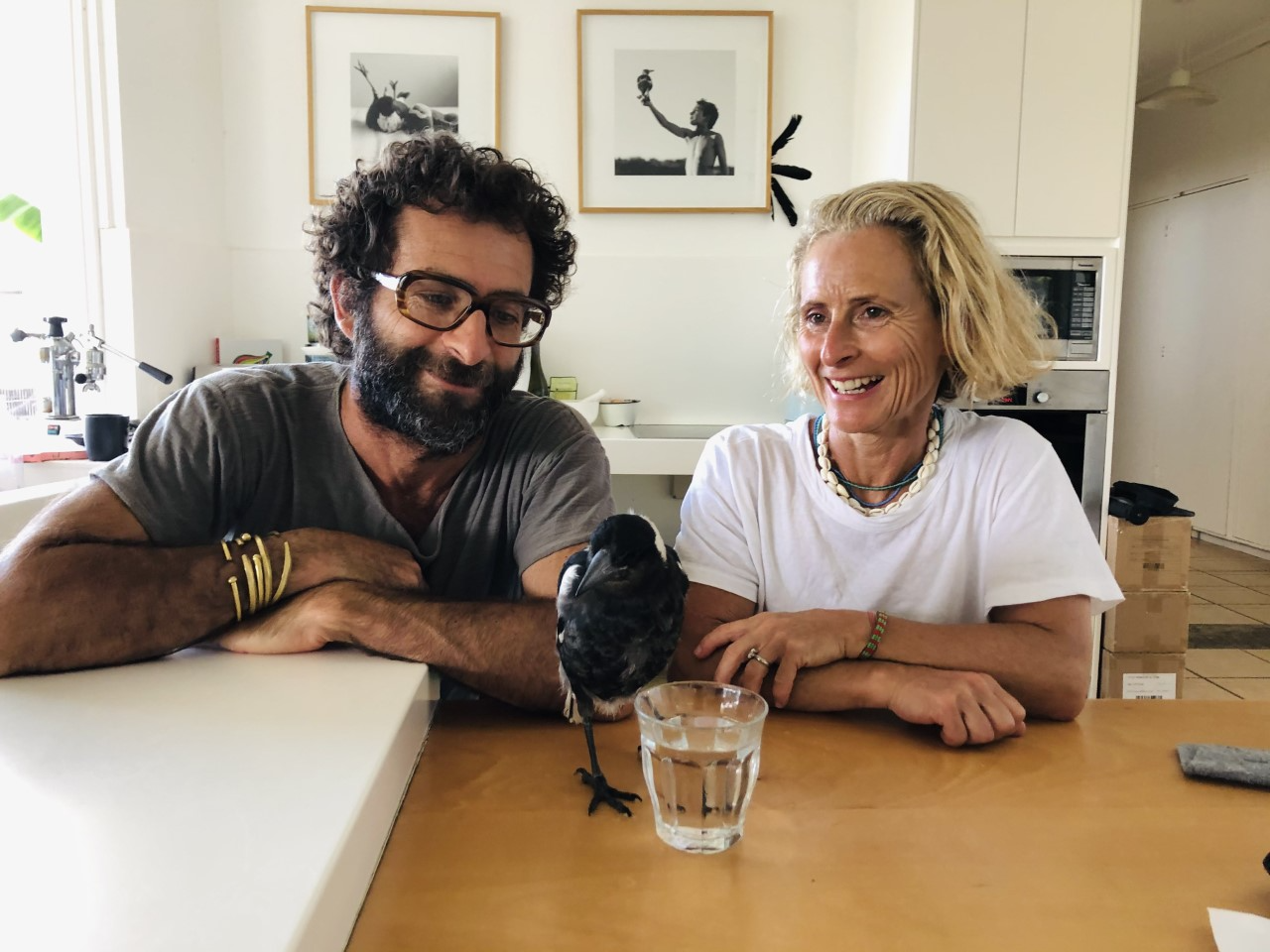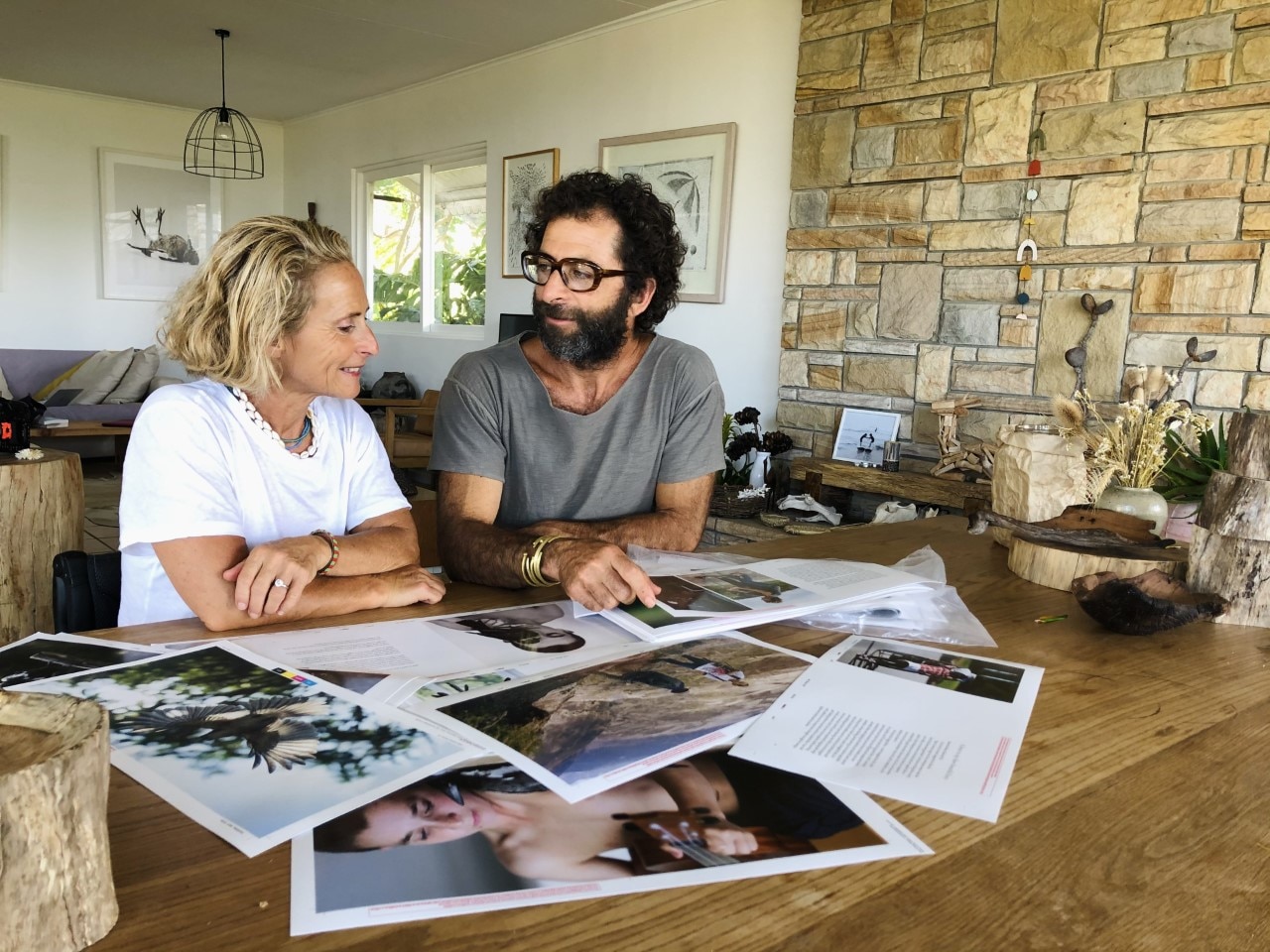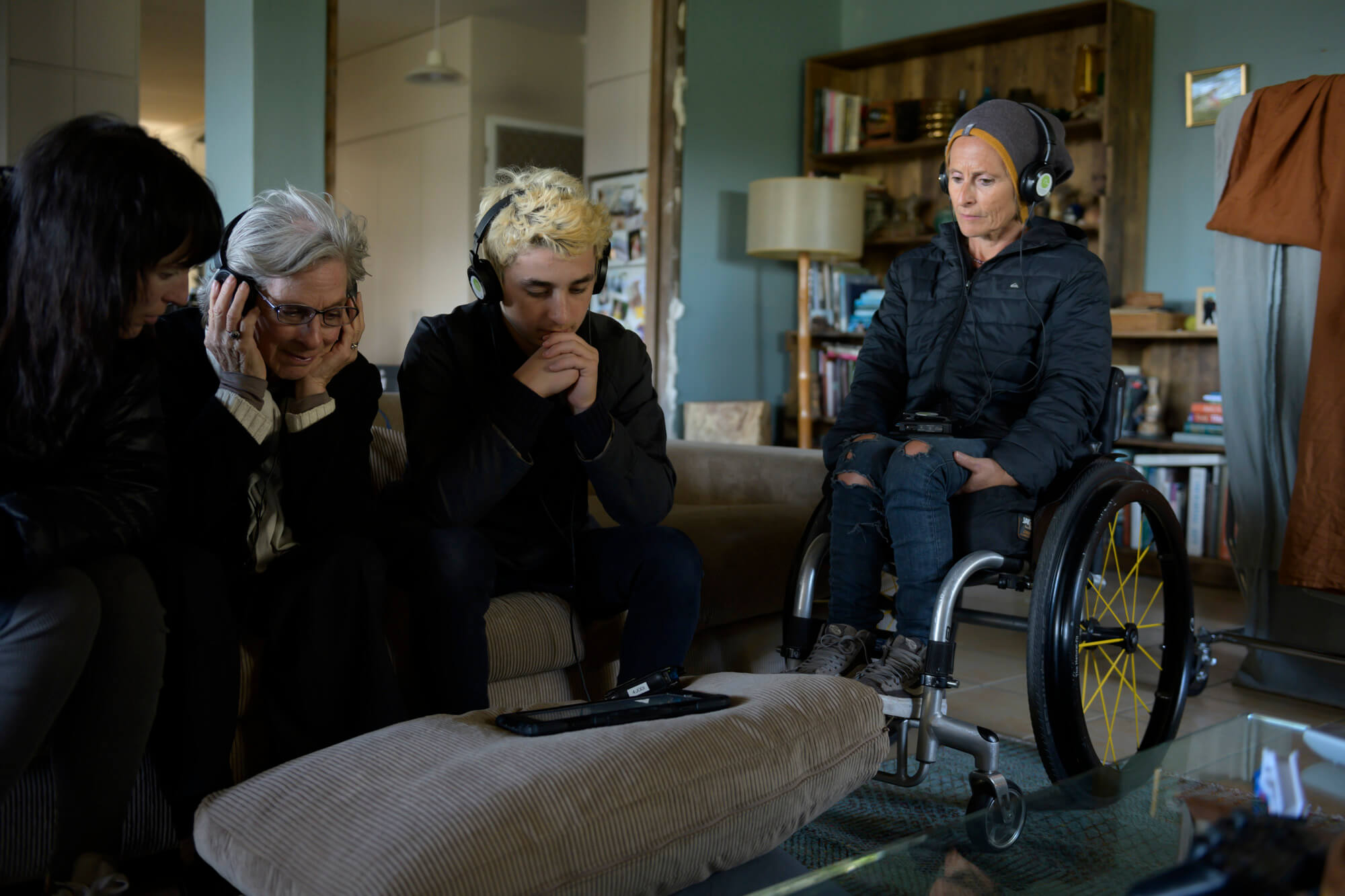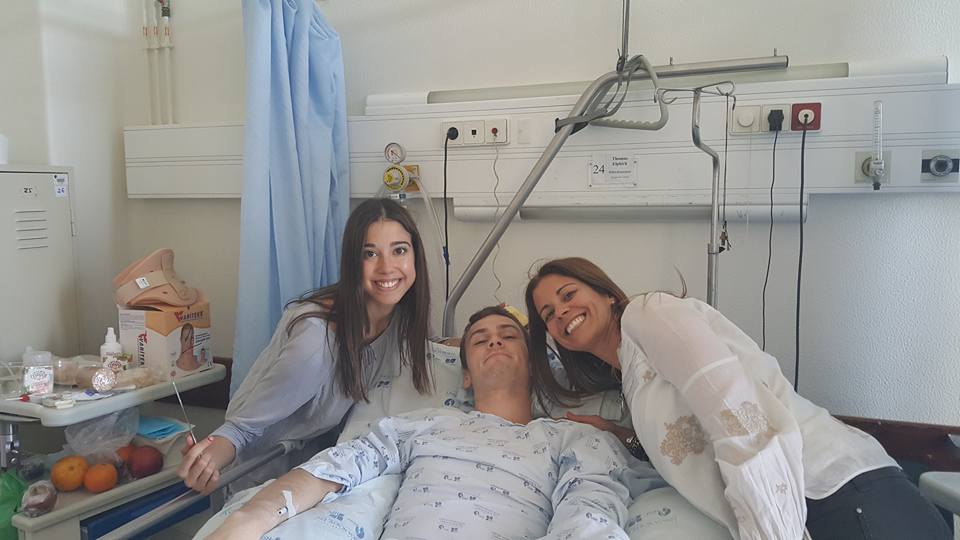This article originally appeared on SBS News. Click HERE to see the original.
By Jennifer Scherer
An accident in Thailand left Australian Sam Bloom paralysed. The unlikely arrival of an injured magpie helped her recovery. Her story has now been made into a film and is opening up a conversation about the representation of acquired disability on screen.
“Cam and I have always loved travelling, so we thought we wanted to take the boys overseas,” the 49-year-old told SBS News at her home in Sydney’s northern beaches.
“We were about four days into our holiday and one of the kids spotted a stairway up to an observation deck, so we all went up.”
They were staying in a tiny village near the ocean, and from the two-story balcony, the tropical vista stretched as far as the eye could see.
To this day, Sam wishes she had never seen that breathtaking view.
“I leant on a railing and it had dry rot,” she said.
As the safety barricade fell away, so did Sam, falling six metres onto the concrete below.
She shattered her spine at the T6 and T7 vertebrae, fractured her skull in several places, and lay in a burgeoning pool of blood – but she would not remember a thing.
“I don’t even remember going up the stairs. My first memory was probably a day or two after and my mum and sister flew over.”
“I remember saying to them ‘what are you guys doing here’ and that was my first memory, I had no idea where I was.”
For Cameron though, that day will be forever etched into his memory.
“It was an incredible shock,” the 49-year-old said.
“It was visually horrific and incredibly scary because none of us really knew whether Sam would survive.
“Just for the boys to see their mum laying there gasping for breath and bleeding, it was something you never forget.”
None of us really knew whether Sam would survive.
– CAMERON BLOOM
Three weeks later, Sam was flown home from Thailand and she began a gruelling path of rehabilitation.
“The doctors [in Thailand] just kept saying ‘it’s spinal shock’, so I just assumed in six weeks I’d be back to normal,” she said.
“[In Australia] I had an MRI and that’s when the doctor came up and so bluntly said, ‘you’ll never walk again’. I think I spent the first month crying.”
Coming to terms with her new reality, Sam fell into a depression, grieving an old life and an old sense of self that would need to be remoulded.
“For Sam, it was really difficult just facing the reality of being back in her home that she loved and being in the wheelchair,” Cameron said.
“Sam just became incredibly depressed and felt isolated.
“It was around that time that we found Penguin and there was this incredible change of atmosphere in the house.”
Meeting a magpie
It’s hard to believe, but Penguin, a young, injured magpie, would become an important part of the Bloom household, and Sam’s next chapter.
The family took in the ball of black and white fluff after it had fallen out of its nest. It was fragile and needed care, giving Sam a renewed sense of purpose.
“For the first year I almost felt like I was under house arrest, I couldn’t go out, I couldn’t drive I was stuck at home,” Sam said.
“Having Penguin here for company and companionship was just amazing.
“She would always be on my lap or on my shoulder, she was with me all the time so I would talk to her continuously … whinge to her, I should say. She was the perfect listener; she was never judgemental.”
Cameron, a photographer, documented the family’s relationship with the bird, which was later made into a book written alongside author Bradley Trevor Greive.
“We always had hope that we’d help Penguin get strong enough to live a free life and be released into the wild,” Cameron said.
“Sam’s recovery is more mental than physical, and around that time, Sam started getting back into exercise again.
“There was a real shift, when Penguin arrived on the scene everything changed, for the better.”
It’s this adjustment to life with an acquired disability that is captured in the film Penguin Bloom, starring Naomi Watts, and released this month.
The film portrays Sam’s life before and after her accident.
“It’s a big responsibility because you’ve got to play that story in the most authentic, responsible way,” Watts said at a recent junket.
“Getting the script right was super important, telling the story from Sam’s perspective but how it connects to the family and how the bird became the glue.
“To find that balance of hope, to find that balance of courage and how one family repairs, that’s a great story to tell.”
Getting it right
With the representation of disability on screen a key to getting the story right, Sam was involved in the film’s production to ensure her realities weren’t glossed over.
“I wanted it to be raw and authentic, no sugar-coating,” Sam said.
“I remember when I came home, you think ‘I’m the only one’, and it’s lonely. I think grief is quite lonely.”
To help the cast and crew gain an understanding of her situation, Sam offered an invaluable insight.
“Sam Bloom kept a diary that was really very personal and was only ever for herself – and she shared it with us,” said director Glendyn Ivin.
“In some ways, that was the real key to knowing what it was like to be in that situation, to be in a depression and have a physical disability that she had found herself with.”
The film’s sensitive portrayal of what it’s like to live with a spinal cord injury has received praise.
Tom Elphick, 26, was in Portugal with friends five years ago when he dived under a wave and hit his head on a sandbank, resulting in a C5 spinal cord injury. He was an aspiring professional dancer and had just landed a dream job at a prestigious dance company.
“I wasn’t able to dance anymore, having been so in command of my body it was so foreign to not even be able to lift my arm or move my finger,” he said.
“I didn’t know how to deal with that.”
Tom hopes the release of the film will give more people a greater understanding of what it is like to live with a spinal cord injury.
“This movie is showing all of the layers that come with a spinal cord injury and sometimes these people are on top of the world and they are kicking goals and really making strides in their own rehabilitation journey, and sometimes they just can’t get out of bed,” he said.
“For people with a spinal cord injury [the film is] a way of sharing their every day with everyone else.”
This movie is showing all of the layers that come with a spinal cord injury.
– TOM ELPHICK
Tom is an ambassador for SpinalCure Australia and hopes the movie will serve “as a beacon of hope”.
“I think for someone with a spinal cord injury, it’s really cool to see that on screen … I want to get in touch with a story and I want to relate to it.”
That view is supported by Joanna Knott, chair and co-founder of SpinalCure Australia.
“Spinal injury is an ongoing mourning process because the individual has lost how their body was and the independence they had before. They have to adjust to a whole new life,” she said.
“Relationships with people need to be re-navigated and that’s complex.
“I think that the movie shows that it is possible to have a great life despite having a spinal injury and it helps people understand a little about the impact of a spinal injury on a person and a family.”
For Sam, she too hopes the film raises awareness of what the journey is really like.
“It’s not just the fact you can’t walk, there’s so much more to it,” she said.
“Penguin is kind of a vessel for telling my story.”
Sam, went on to be part of Australia’s para-canoeing team and often credits Penguin with saving her, during the time they had together.
Sam was in Italy competing, waiting for her husband Cameron to join her when that chapter would end, two years after they first took the bird in.
“It was really weird … the night before he left with the boys, she flew away,” she said.
“She came at the perfect time and left at the perfect time.”





